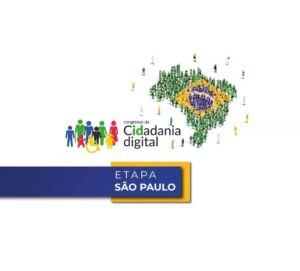At the opening of the Digital Citizenship Congress, held on Monday evening (9/16) in Brasília, the Minister of Management and Innovation in Public Services, Esther Dweck, highlighted that the National Identity Card (CIN) is a way to care for the Brazilian population. So far, around 13 million CINs have been issued in 25 states and the Federal District (DF). The event aims to deepen discussions on the effective implementation of citizenship through the transformation of Brazil’s identification system.
“For the first time, people will be able to rely on a single document, integrating both physical and digital formats, across Brazil, with securely registered and stored biometric data, and with the possibility of identifying themselves whenever they need public services. Their requests will be addressed much more quickly, thanks to the other fronts of Digital Government,” said Dweck.
The minister also stated that the number of issuances is expected to grow over the next year, as states will be able to use resources from the National Public Security Fund in this process. One of the innovations of the CIN is having a national standard and unique number, the CPF. This way, it will be possible to reduce fraud, improve administrative records, and provide Brazilians with access to citizenship.
During her speech, Dweck also celebrated the creation of National Identity Day. The new law was sanctioned today by President Luiz Inácio Lula da Silva and will soon be published in the Federal Official Gazette.
“September 16 is a reference to Target 9 of United Nations Sustainable Development Goal 16, which represents the commitment of all nations to provide legal identity for everyone by 2030,” explained the minister. “The institution of this day strengthens our work and rightly recognizes the efforts of all those who have dedicated their time and intelligence to guaranteeing the right to civil documentation,” she added.
For the Secretary of Digital Government of the MGI, Rogério Mascarenhas, the CIN agenda is important for various areas of the government, such as Health, the Federal Revenue Service, and Justice. According to Mascarenhas, the CIN initiative will enable the administration to better serve the Brazilian population, allowing for the full exercise of citizenship.
“What we are discussing, and Brazil has been pursuing for over 40 years, is a secure identification process that provides the conditions for us to have an effective public policy, one that truly identifies citizens, whether for the exercise of rights or the fulfillment of duties,” Mascarenhas stated.
Sports
Also during the event’s opening, the new identity card was handed to Olympic medalist Caio Bonfim, the first Brazilian to win a silver medal in racewalking, a track and field discipline. With his CIN in hand, Caio explained the importance of improving identification for young athletes from the grassroots level, such as during travel.
“First, to travel to another state, they need identification to represent their state or city in a competition. So having identification is the first opportunity for them,” he explained. “The other benefits available on GOV.BR, like the vaccination card, all these things help athletes grow healthier and stronger, increasing their opportunities and likelihood of success in sports,” he added.
The CIN is designed to follow citizens throughout their lives, from birth to death. This way, public administration can proactively offer public services and social benefits based on the individual’s age group.
Digital Citizenship Congress
The Digital Citizenship Congress is an initiative organized by the Brazilian Association of Technology Companies in Digital Identification (Abrid) and supported by the Ministry of Management. The new National Identity Card (CIN) will be one of the event’s highlights, as the document is the gateway to public services and social benefits.
The event will also address topics such as Public Digital Infrastructure (IPD), the National Data Infrastructure (IND), Neonatal and Child Identification (as a way to promote safety for Brazilian children), and electronic signatures. Additionally, discussions will cover how entrepreneurship and innovation impact Brazil’s digital transformation.
In addition to the panels, the congress will also allow 300 people to receive their CIN. Throughout the event, participants will also be able to see the CIN’s application in places like maternity wards, health clinics, banks, schools, and commerce. There will also be an area for participants to learn about the history of biometrics in Brazil, as well as a GOV.BR booth.

Photo: Adalberto Marques (MGI)




